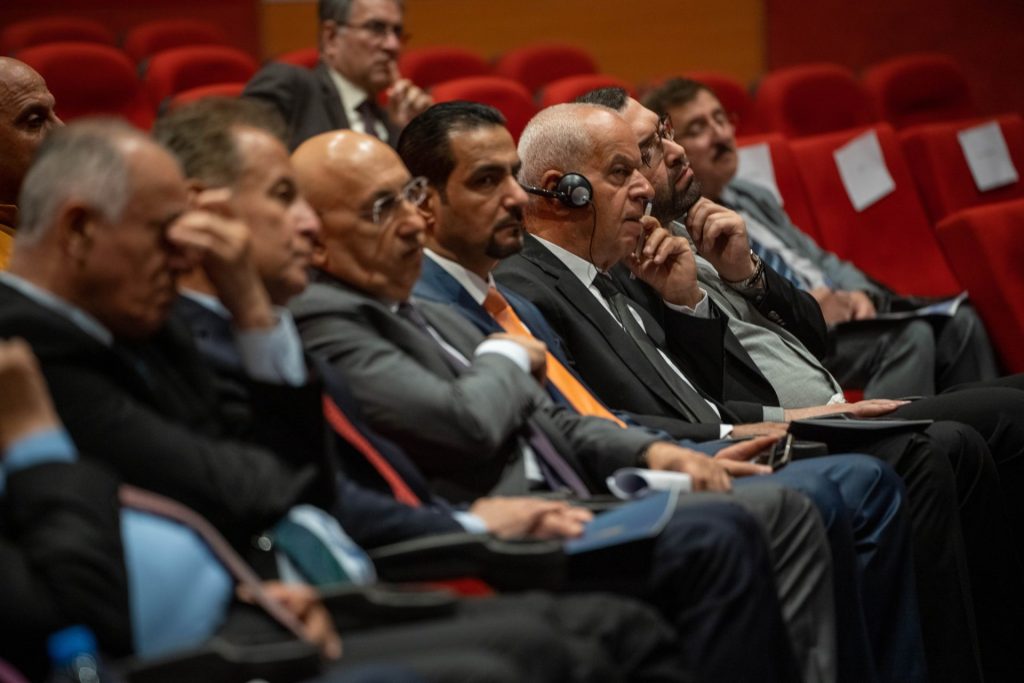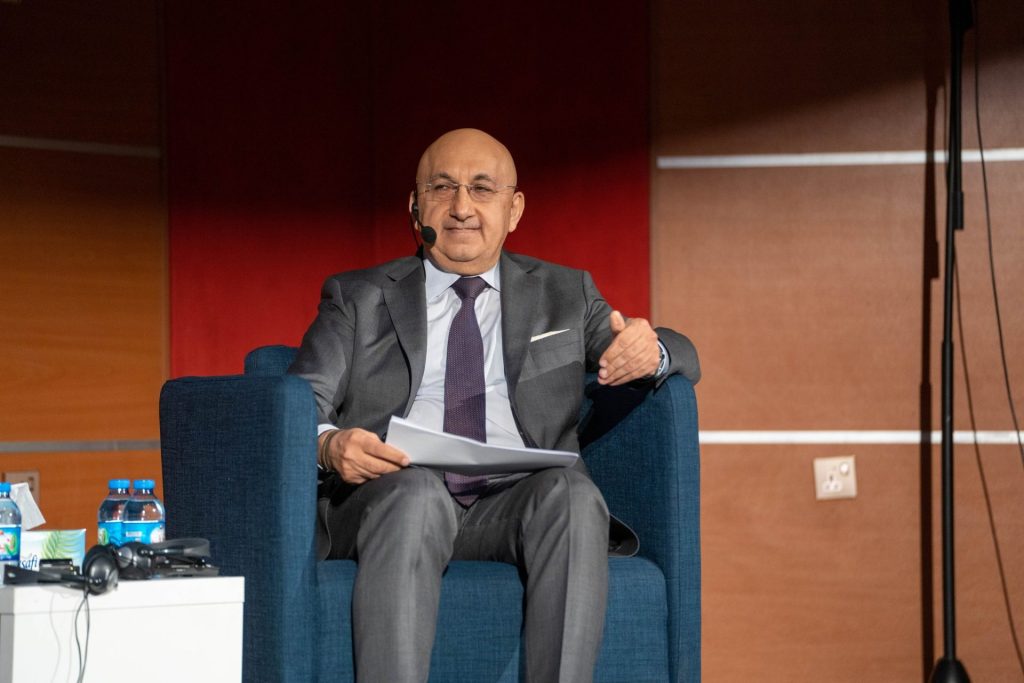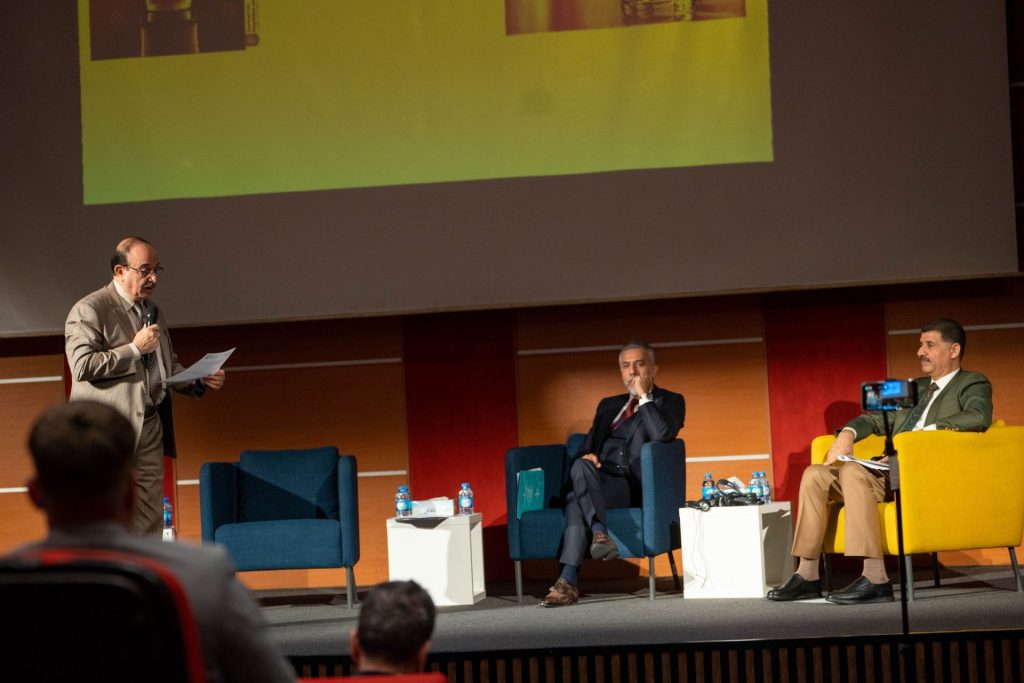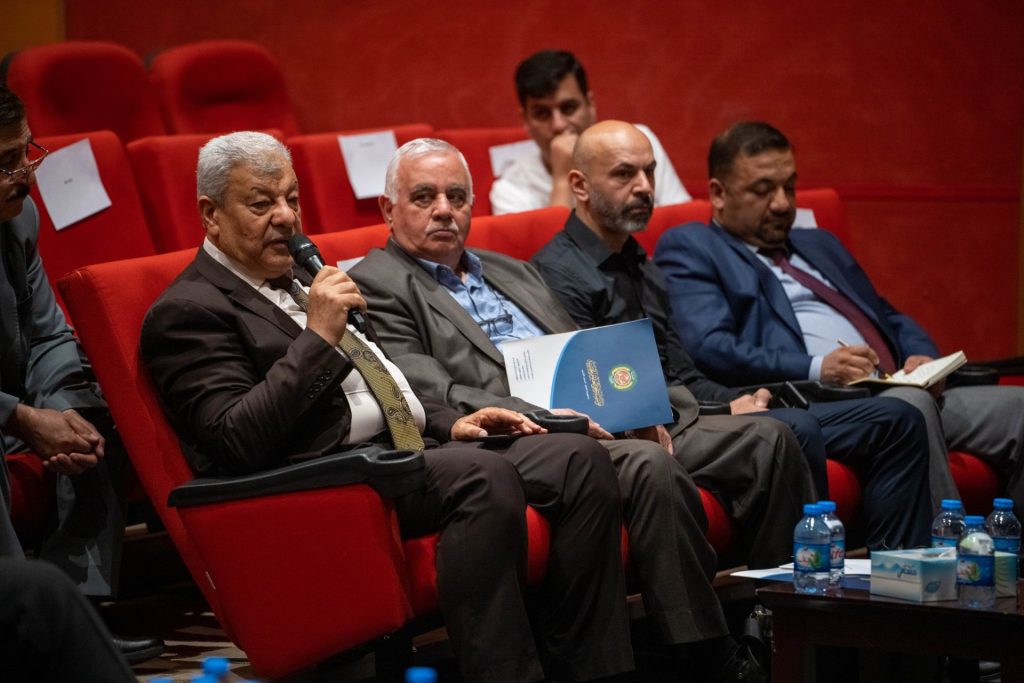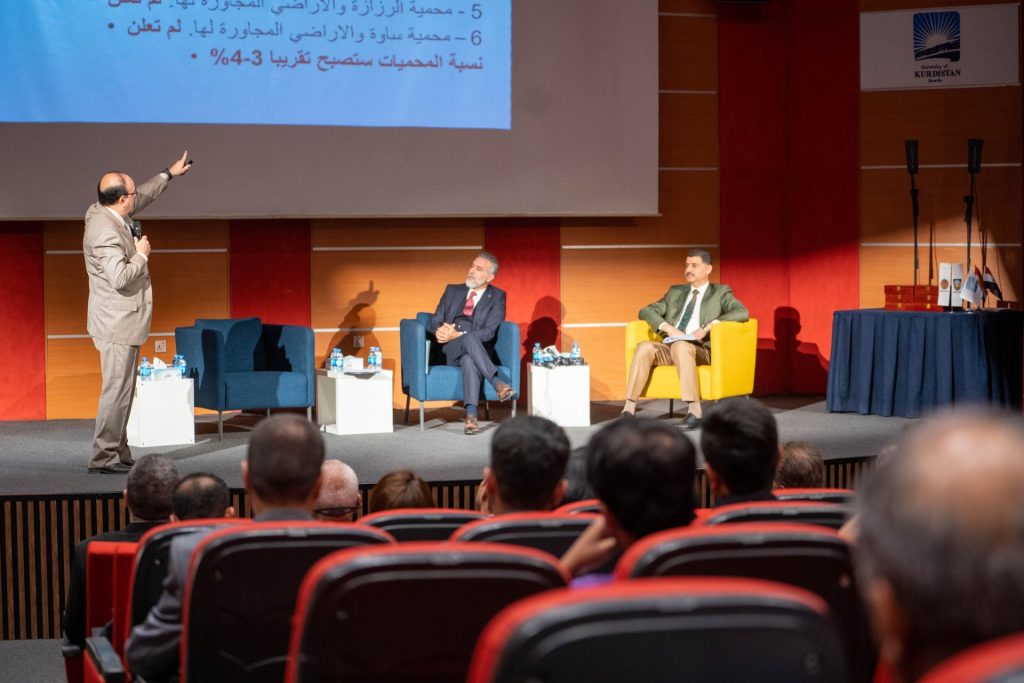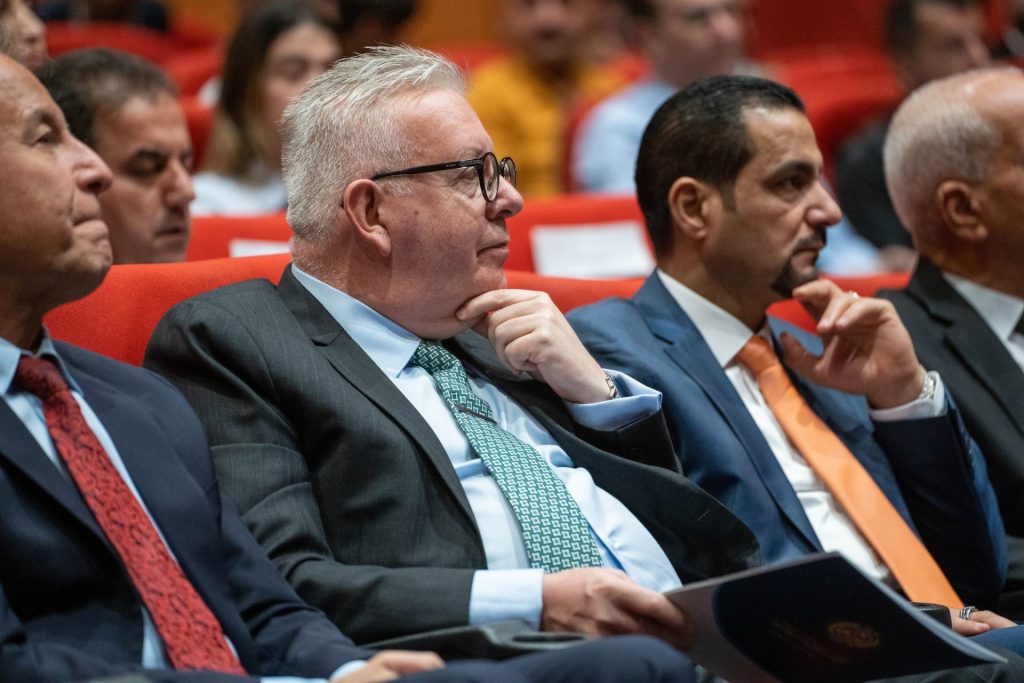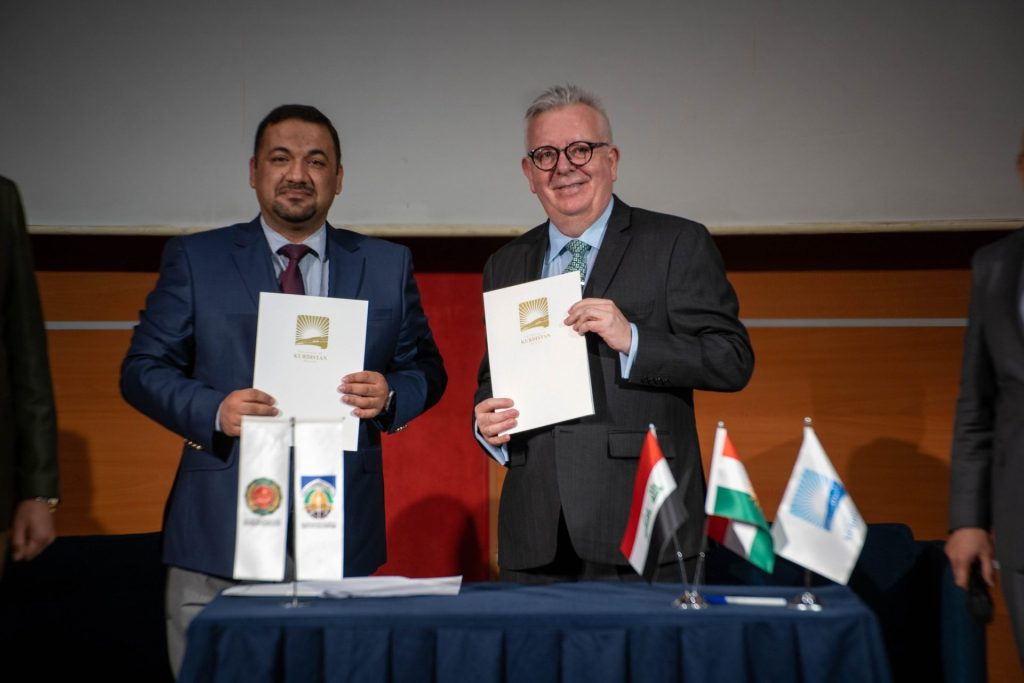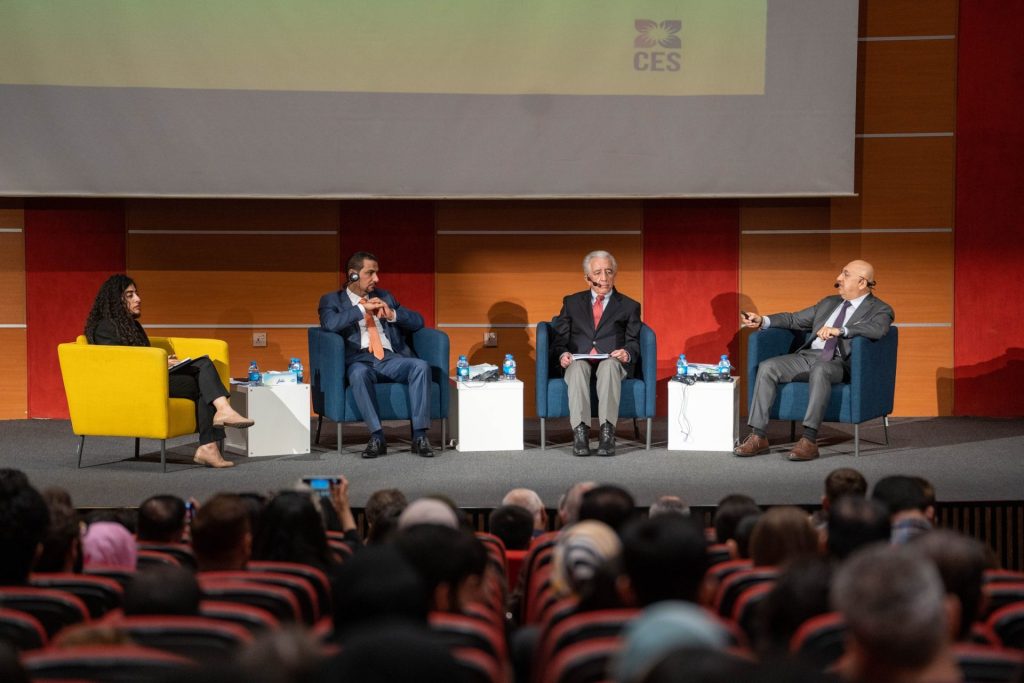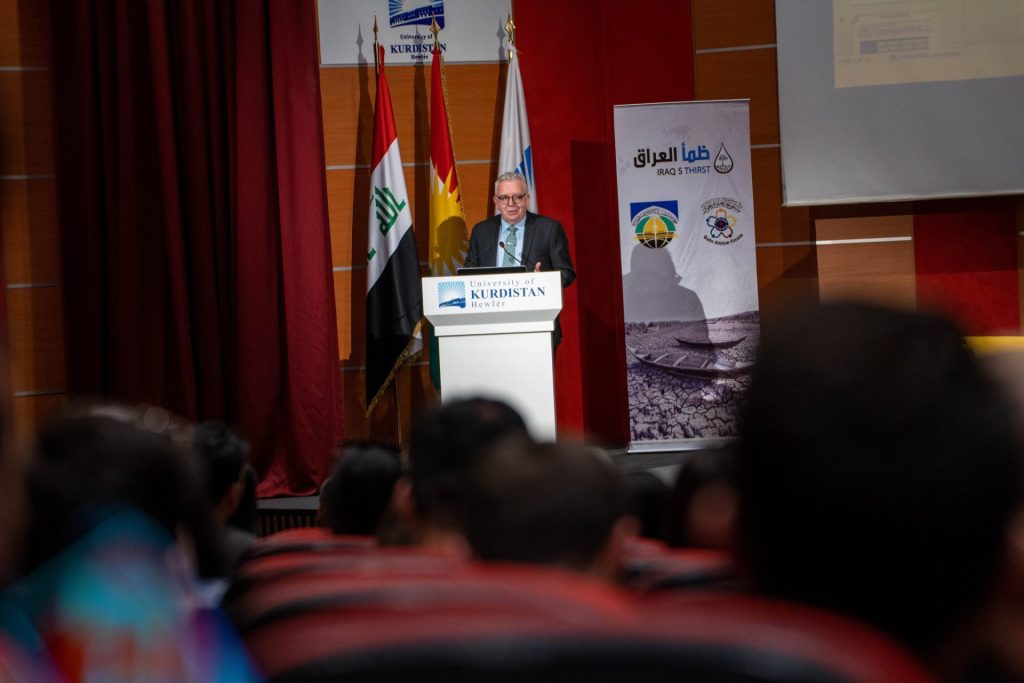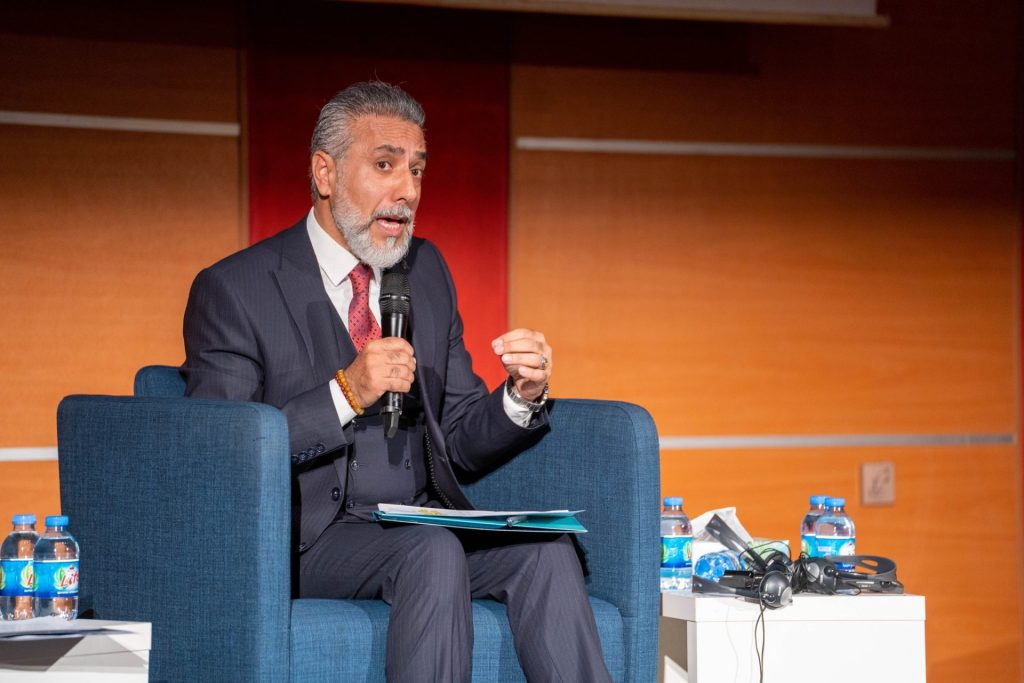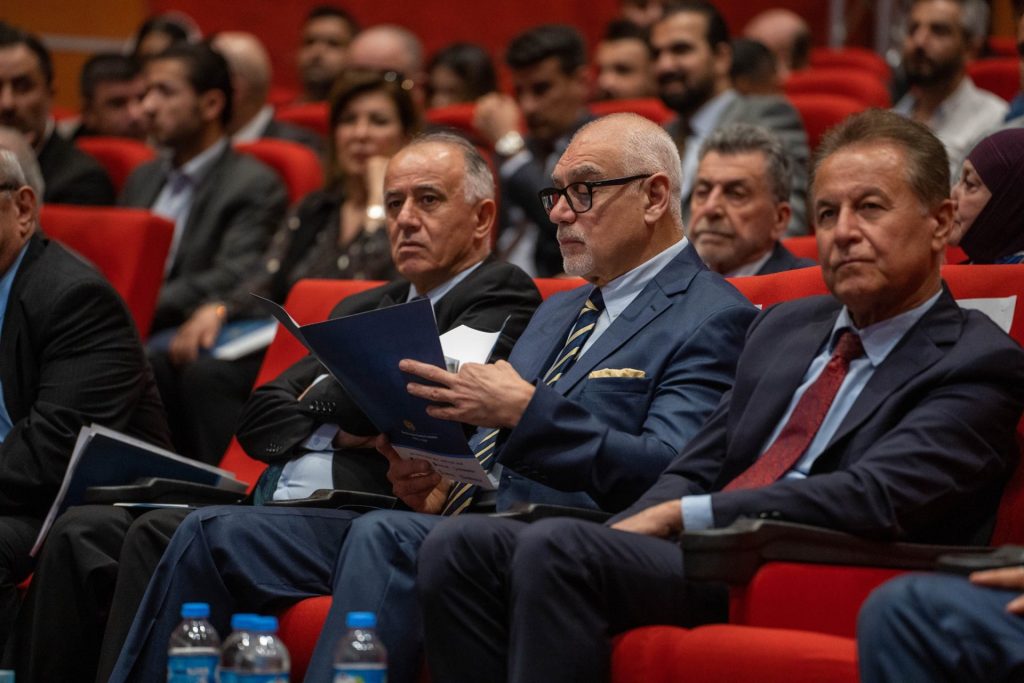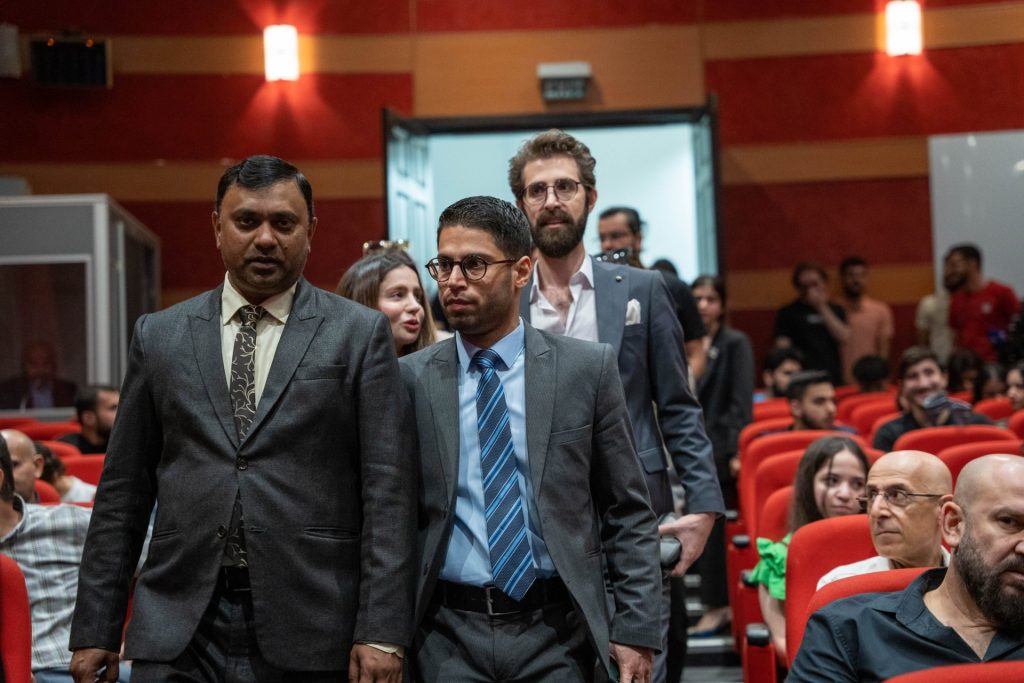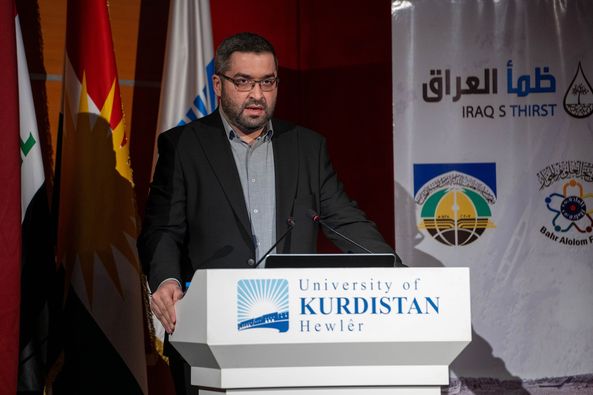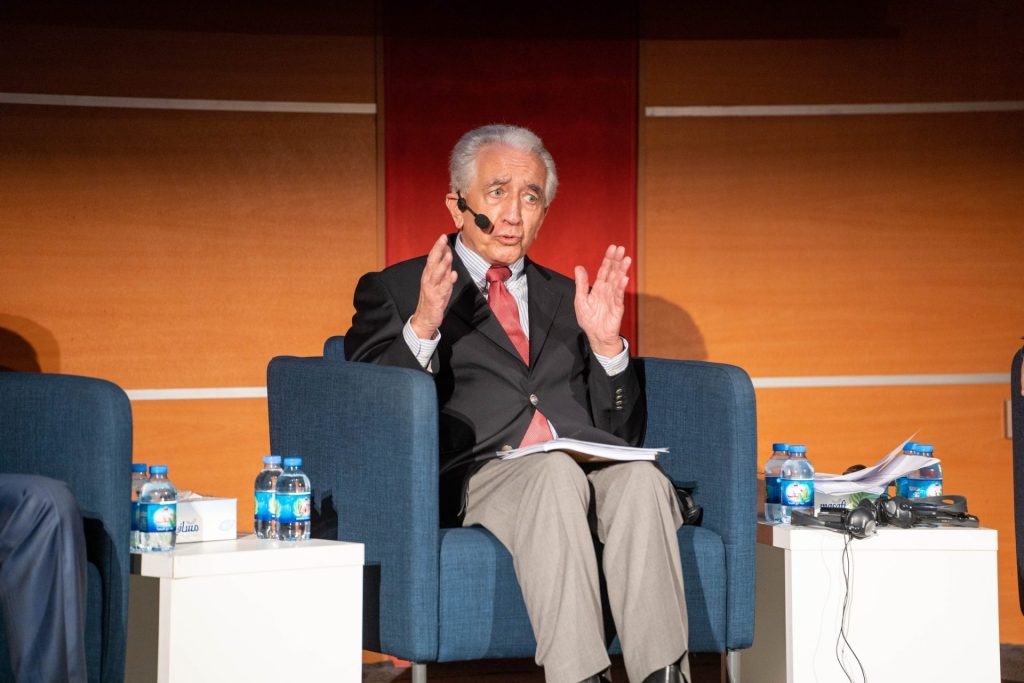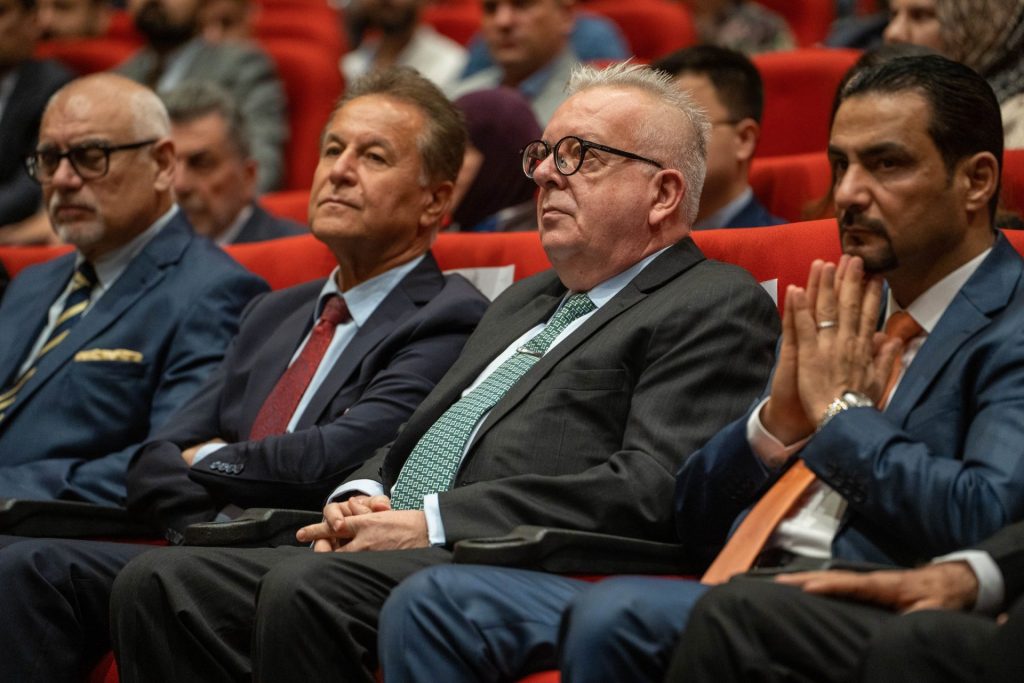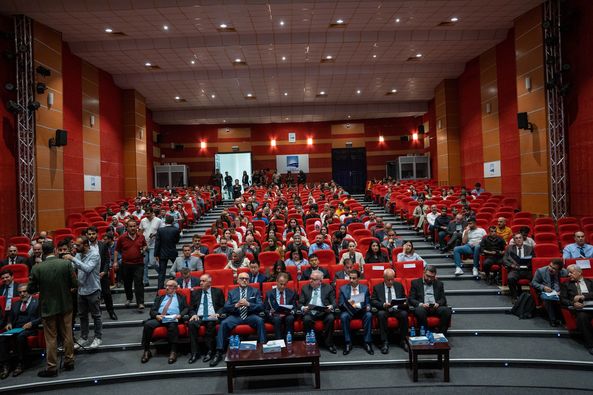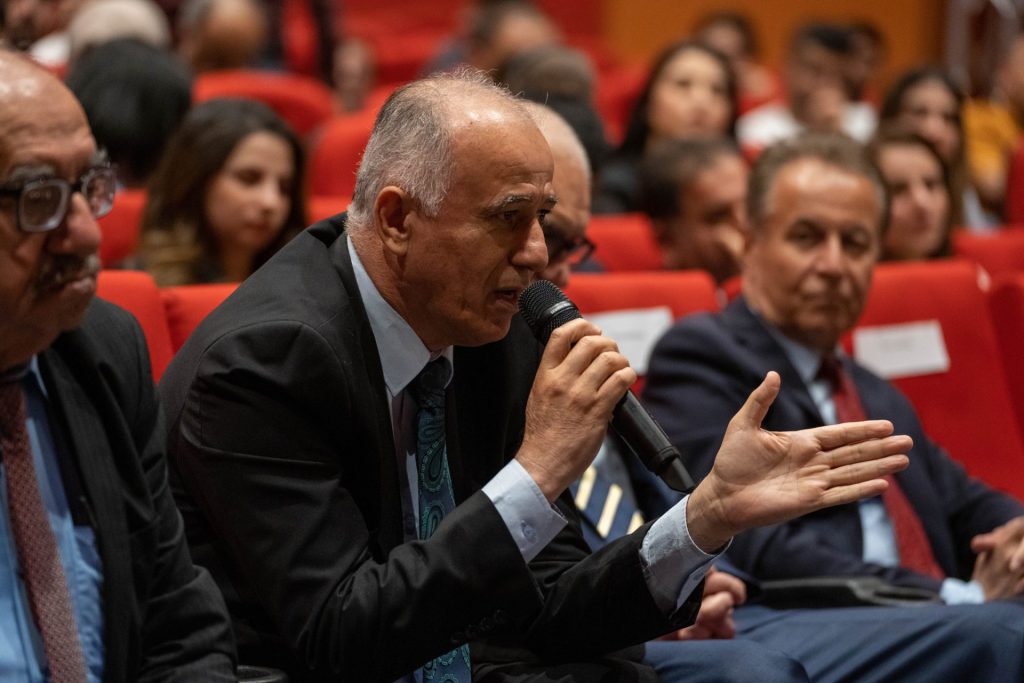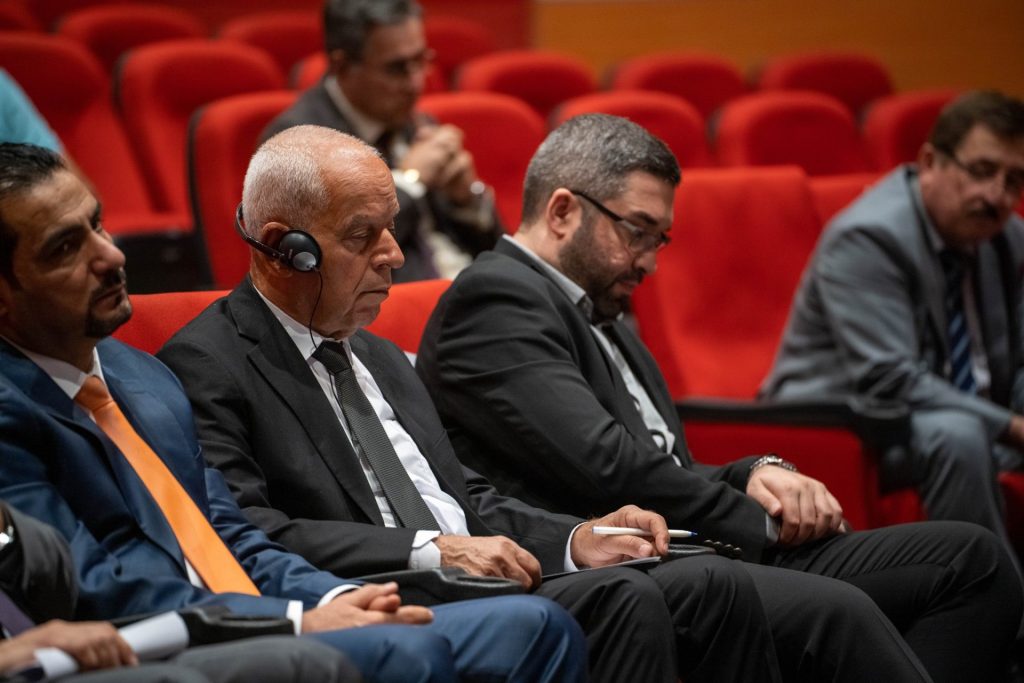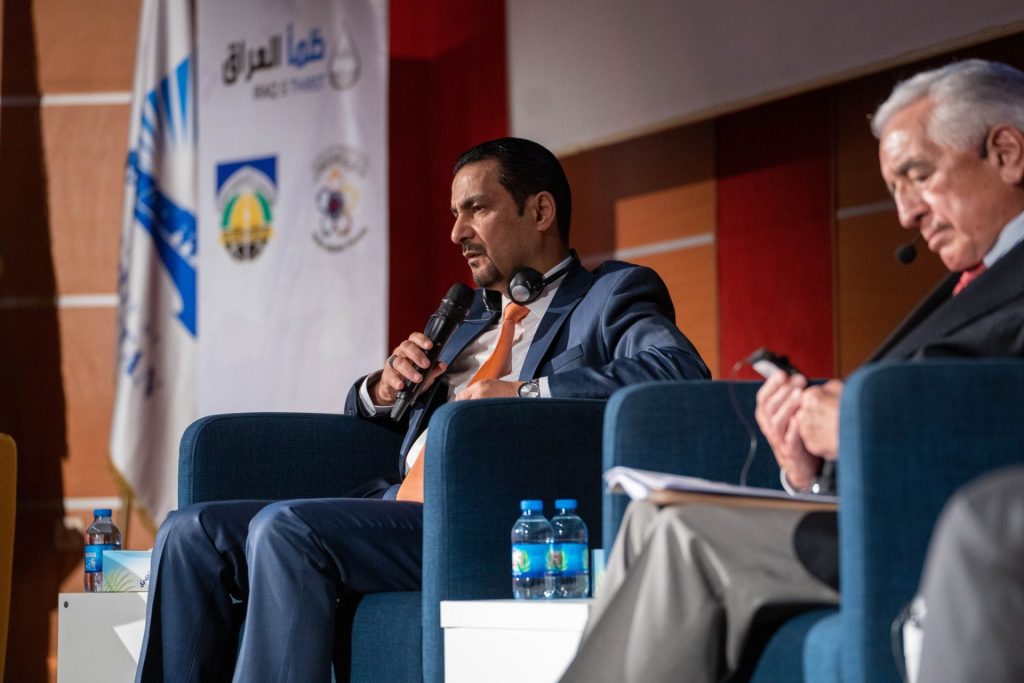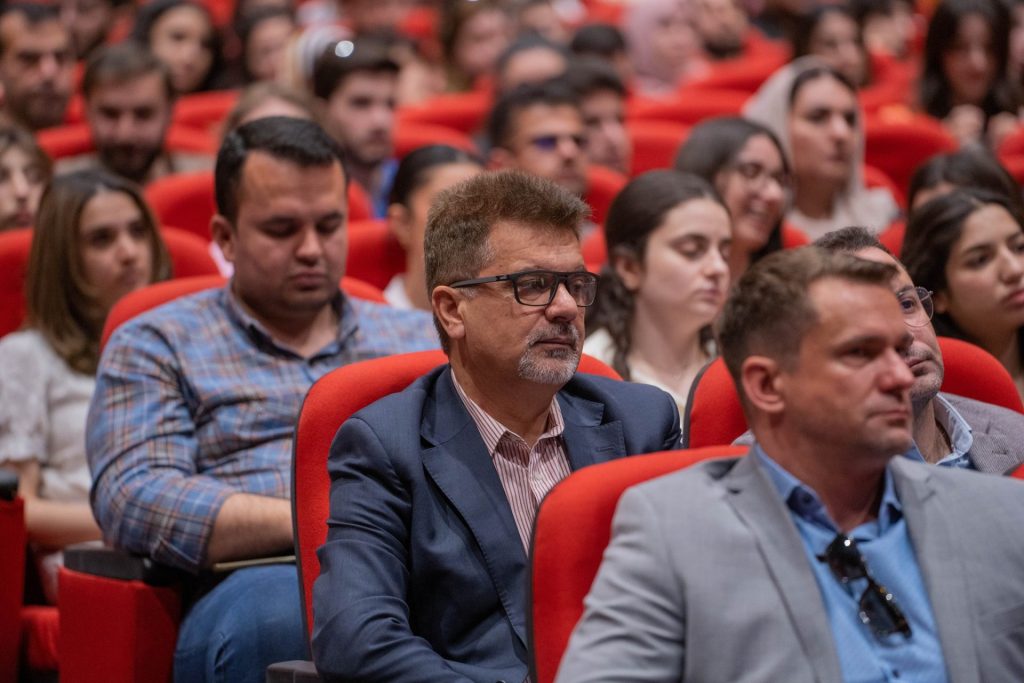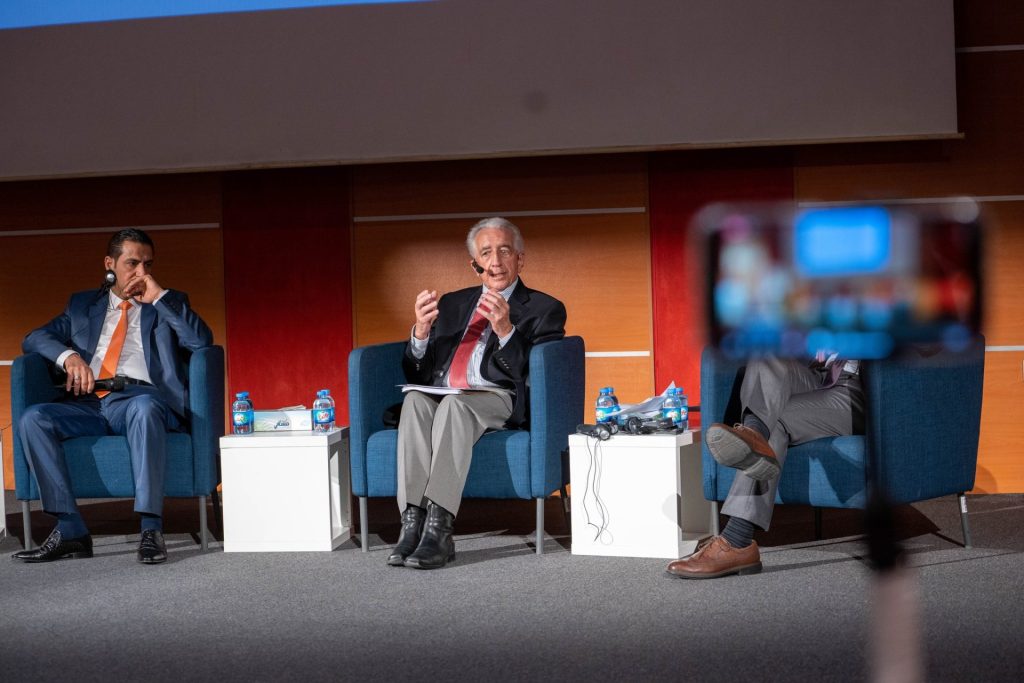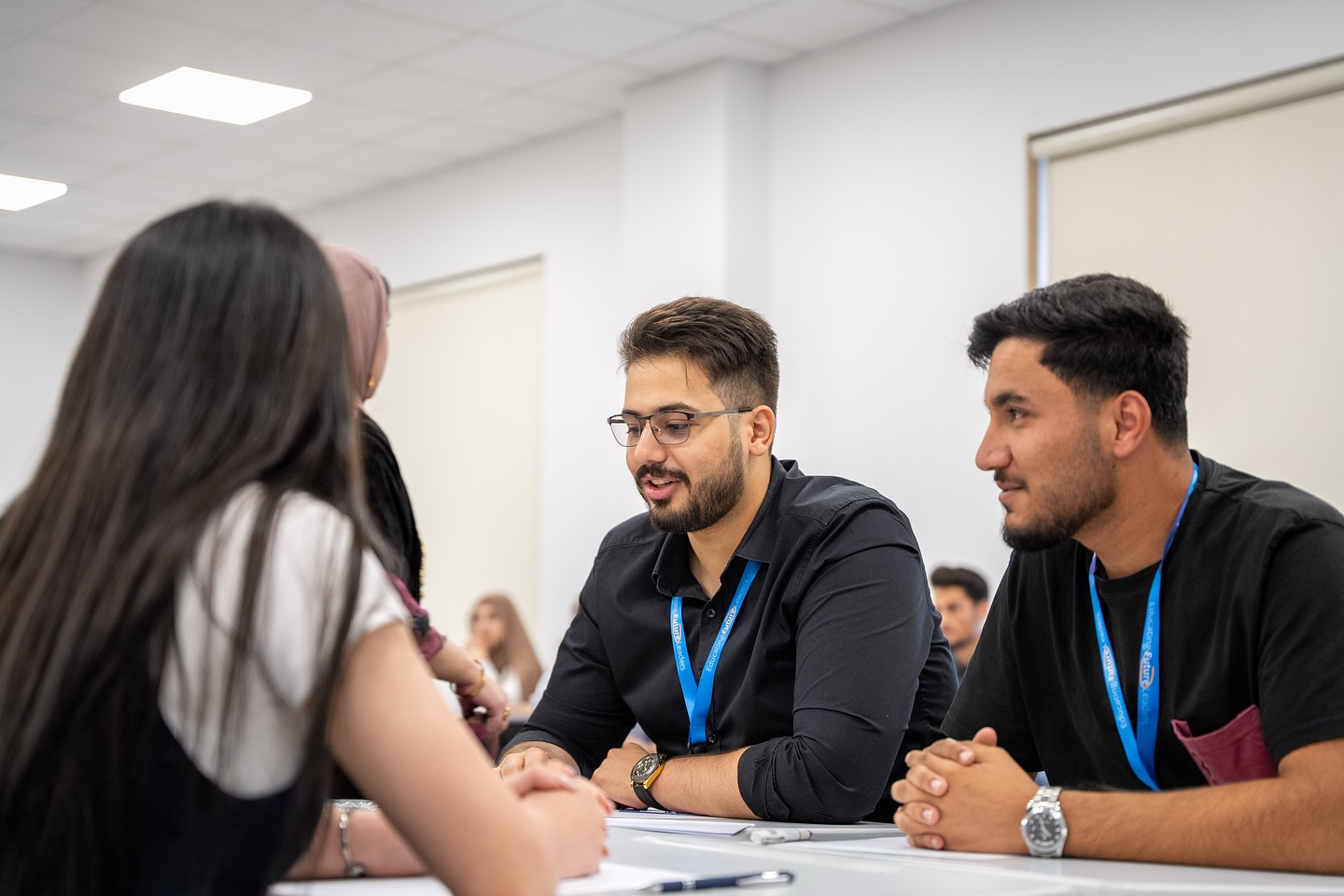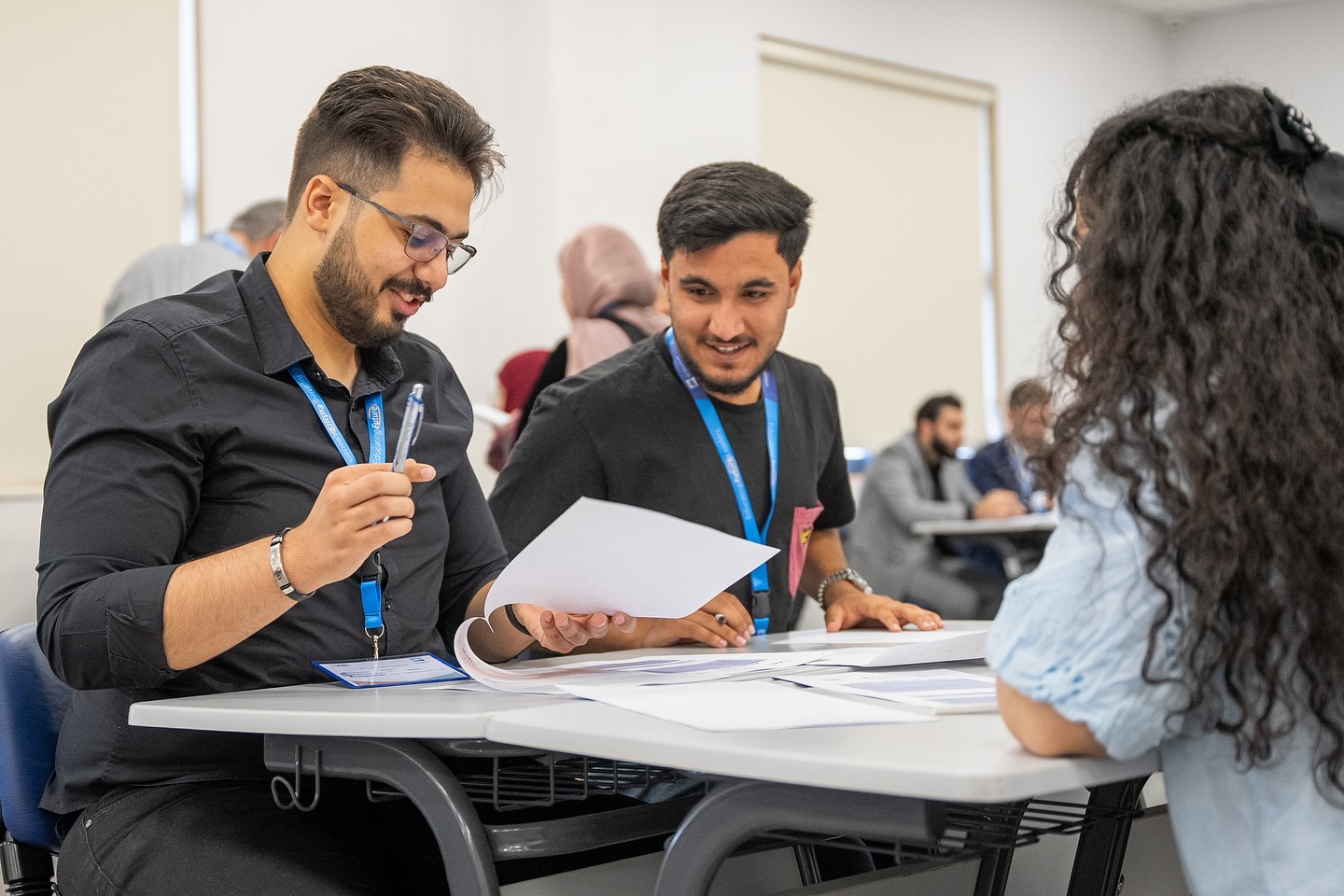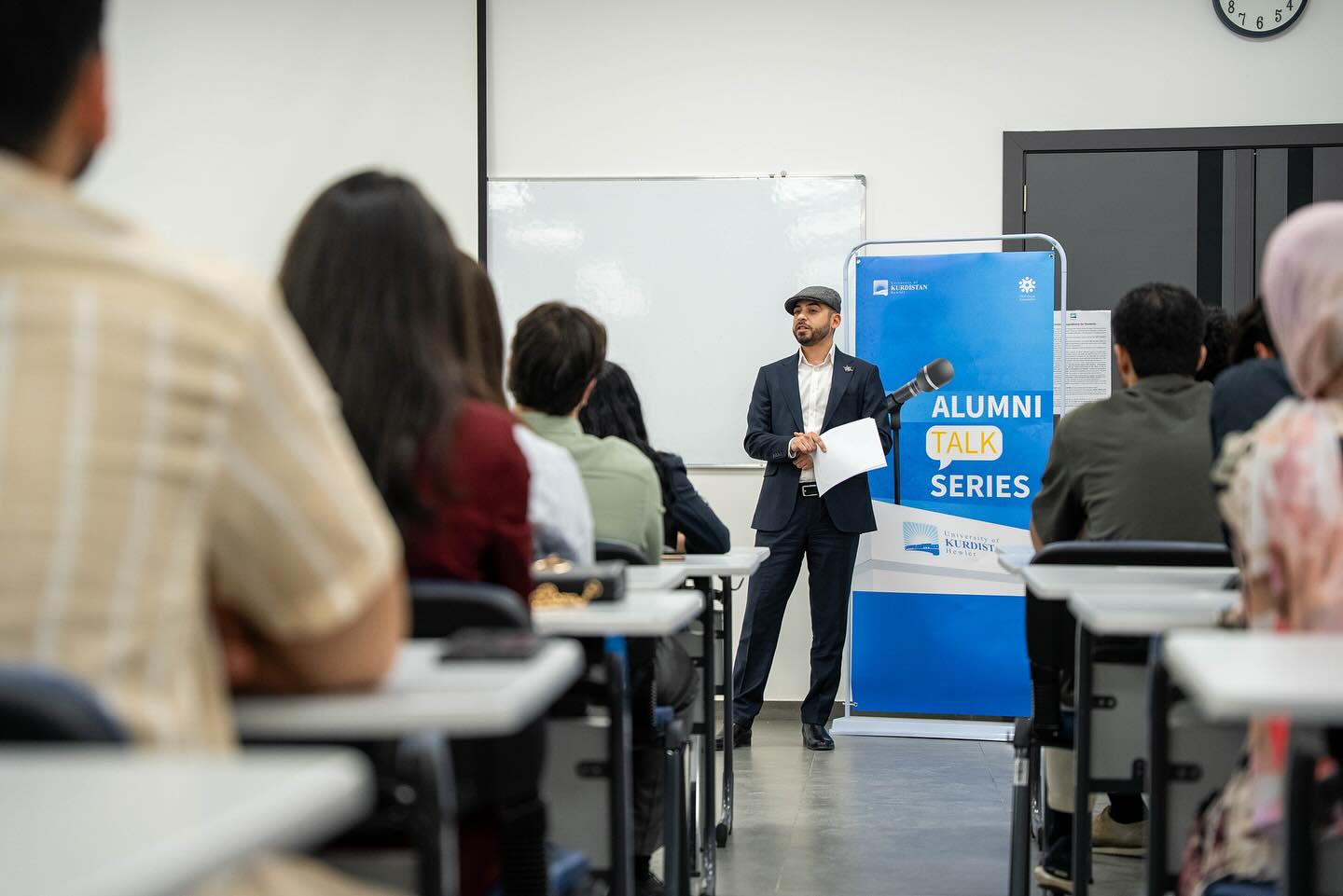On Tuesday 2 May 2023, the University of Kurdistan Hewlêr (UKH) in cooperation with the Bahr Alolom Forum, held a special workshop titled ““Water Crisis and Paths of Cooperation Between the Federal Government and the KRG”.
It is the first time a university in the Kurdistan Region of Iraq (KRI) initiates academic dialogue and discussion between experts, stakeholders and academics from the KRI and the rest of Iraq on an important issue such as water crisis.
The workshop was attended by officials and academics from Erbil and Baghdad, as well university presidents, professors, NGOs, environment activists and students from the KRI and beyond.
UKH President Professor Dr. Keith Sharp and Dr. Mahdi Bahr Alolom, Head of Iraq Thirst Project delivered opening remarks and welcomed the guests. They both expressed their happiness and wishes for further cooperation between the two parties in the future.
The workshop included two sessions of panel discussions and presentations. The first panel discussed the integration of water management efforts between Erbil and Baghdad. Panelists Professor Dana Mawlood, UKH Vice President and professor of water and environmental engineering, Dr. Khalid Shemal, spokesperson of the federal ministry of water resources and Clarry Stafford, humanitarian affairs advisor discussed a variety of issues related to water and environmental crisis in Iraq.
Professor Dana Mawlood noted that Iraq has almost no control over its water resources. ”50% percent of the available surface water in Iraq originates from upstream rivers in the neighboring countries, and the other 50% originate from rainfall and melting snow in Kurdistan reign and other sources, which directly affects the downstream rivers (Tigris)” he said.
He also highlighted how the impacts of climate change, the sharp decrease in rainfall and unprecedented heat waves with temperatures above 50 degrees Celsius only further deteriorate the situation.
Dr. Khalid Shemal shed the light on the recent negotiations between Erbil and Baghdad to unify the efforts to control the damages resulted from water mismanagement and floods. The two sides are also cooperating in water resources management, dams maintenance and building new ones.
Mr. Clarry stressed on the importance of academic institutions in capacity building and manpower to lead the way in the future.
The second session, membered by Dr. Khamis Mukhtar and Abdulsalam Medeni, focused on the implications of water scarcity on the eco system in Iraq. Both panelists discussed how environmental activism, the use of technology can help contain the raising water and environment crisis in the nation.
The last session included a presentation titled “Analysis of Flood Risk in Erbil as a Method for Solution of Water Crisis in Iraq”, delivered by Anwar Hazim Dawood, PhD Candidate.
Before the conclusion of the workshop, UKH Centre of Environmental Studies (CES) and Bahr Alolom Forum’s Al-Alamain Institute for Higher Education signed a memorandum of understanding to cooperate in the fields of water and environment in the future.
